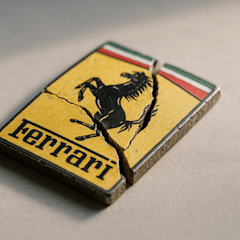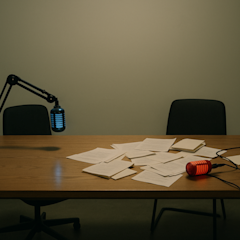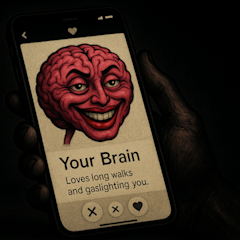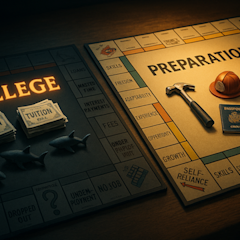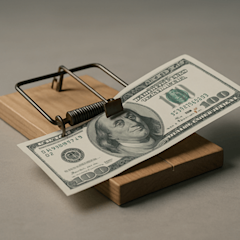Podcasts Are the New Cigarettes
Are podcasts the new books? Or are they the new cigarettes?
I just went on Ryan Holiday’s podcast. And we spent a lot of time on that question.
Ryan and I are both podcasters.
So it’s a little like two bartenders debating whether alcohol is medicine or poison—while we’re pouring each other another drink.
But it’s an important question because podcasts have become the soundtrack of our commutes, our workouts, even our insomnia.
Here’s what happened…
And why this is probably one of the most important conversations of our time.
Why Everyone Knows Everything
We talked about writing, noise vs. silence, algorithms, and why everyone now feels like they have to have an opinion on everything.
These are hard habits to break.
Because the truth is, most of the time I have no idea what’s happening in Ukraine, the Fed, or TikTok’s algorithm. And yet I’m supposed to have a “take.”
Silence is violence, they say. But isn’t noise violence too?
That’s the trap: podcasts give you this illusion of depth when, most of the time, there’s nothing there. It’s just noise filling silence.
When silence is probably the antidote.
There’s an inherent danger to the medium itself.
When you’re stuck in traffic or grinding on a treadmill, you’re not fact-checking—you’re marinating, which is why nonsense can sound profound in audio when it would collapse in print.
But the problem isn’t podcasts. The problem is us.
Our dopamine systems are being hijacked. If the clip has a red-faced thumbnail and the word “DESTROYS” in all caps, we’re there.
And meanwhile, books—the slow-brew wisdom machines—sit neglected. Books take years. Podcasts take two hours and a Starbucks.
Podcasts Are Cigarettes?
Podcasts can be thoughtful, connective, even life-changing—like books. But they can also be addictive, shallow, and manipulative—like cigarettes.
The tension isn’t resolvable. It’s the price of the medium.
So are podcasts destroying our brains? Maybe.
But they’re also giving us stories, connections, reminders that we’re not alone in being confused, old, tired, creative, or just trying not to make “old man moves” at the chessboard of life.
And sometimes, they remind me why I started writing in the first place: not to be a slave to the listener, or to the algorithm, but to be free.
Anyway, if you want to hear me wrestle with all this (and also my one weird Bono story), the full conversation is here:
Are Podcasts Destroying Our Brains? | James Altucher and Ryan Holiday


